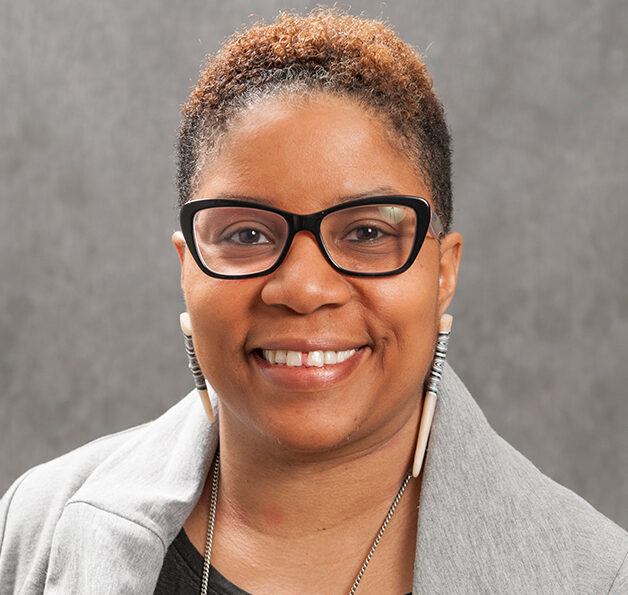Diet is not an individual endeavor

Since 1978 Cook County’s local food bank, the Greater Chicago Food Depository, has been providing food for hungry people while striving to end hunger in the community. However, with the onset of COVID-19, the food depository has seen a 120% rise in need and according to a recent poll from National Public Radio, 20% of Chicago households report facing serious problems affording food, according to a recent survey conducted by Northwestern University’s Institute for Policy Research.
Angela Odoms-Young, KN associate professor and director of the Nutrition, Obesity and Health Equity Research Group at UIC, has devoted her life’s work to fighting against food injustice and dismantling the policies and systems that lead to disparate health outcomes among racial and ethnic groups. In her research, she has seen food insecurity rise and fall over the past 20 years. But notes that racial gaps in food insecurity have continued to persist with rates in Black households being twice as high as in white households.
A key focus of her recent work is how COVID-19 has impacted Black and Brown communities more significantly. “That’s because you have this historic disadvantage, and now you’re layering a pandemic on top of that. We also saw [the same thing] with Hurricanes Katrina and Sandy,” Odoms-Young notes. “This is not new.”
Under her direction, NOHE is working on several projects to support the use of new models within the charitable food system and establish equitable and diverse food systems in communities overall that promote and sustain long-term health. To do this, Odoms-Young’s team collaborates with community organizations/agencies across the city and nationally to co-design and co-develop programs, evaluate their impact and deal with the social and structural factors that are at the root of disease, disability and death.